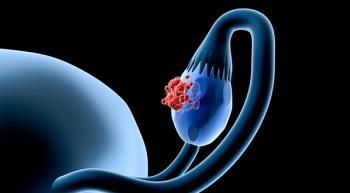
Endocrine Therapy Alone Shows Benefit for Some with Early Breast Cancer
Game-changing data published in the New England Journal of Medicine and presented during the 2018 ASCO Annual Meeting indicated that many women with HR+, HER2–, axillary node–negative breast cancer would see no significant benefit to having chemotherapy in addition to endocrine therapy.
Game-changing data published in the
Standard treatment of this subgroup of women with breast cancer has traditionally used a recurrence score (based on a 21-gene breast cancer assay) to determine if a woman should receive endocrine therapy alone or endocrine therapy plus chemotherapy. Women at low risk of recurrence (<10) typically received endocrine therapy alone while those at high risk (>25) received the combination therapy. The problem was that there was uncertainty about how women with a midrange recurrence score of 11-25 should be treated.
A large group of researchers led by Joseph Sparano, MD, from Albert Einstein College of Medicine in Bronx, NY, conducted a prospective trial called TAILORx, involving 9719 women with HR—positive, HER2–negative, axillary node–negative breast cancer. In this group, 6711 (69%) with a midrange recurrence score of 11-25 were randomly assigned to receive either endocrine therapy alone or endocrine therapy plus chemotherapy.
At 9 years, the endocrine-therapy group and the endocrine therapy plus chemotherapy group had similar rates of invasive disease—free survival (DFS; 83.3% vs. 84.3%, respectively), freedom from disease recurrence at a distant site (94.5% vs. 95%, respectively) or at a distant or local–regional site (92.2% vs. 92.9%, respectively), and overall survival (93.9% vs. 93.8%, respectively). The chemotherapy benefit for invasive DFS varied with the combination of recurrence score and age, with some benefit of chemotherapy found in women 50 years of age or younger with a recurrence score of 16-25.
Newsletter
Knowledge is power. Don’t miss the most recent breakthroughs in cancer care.
























































































